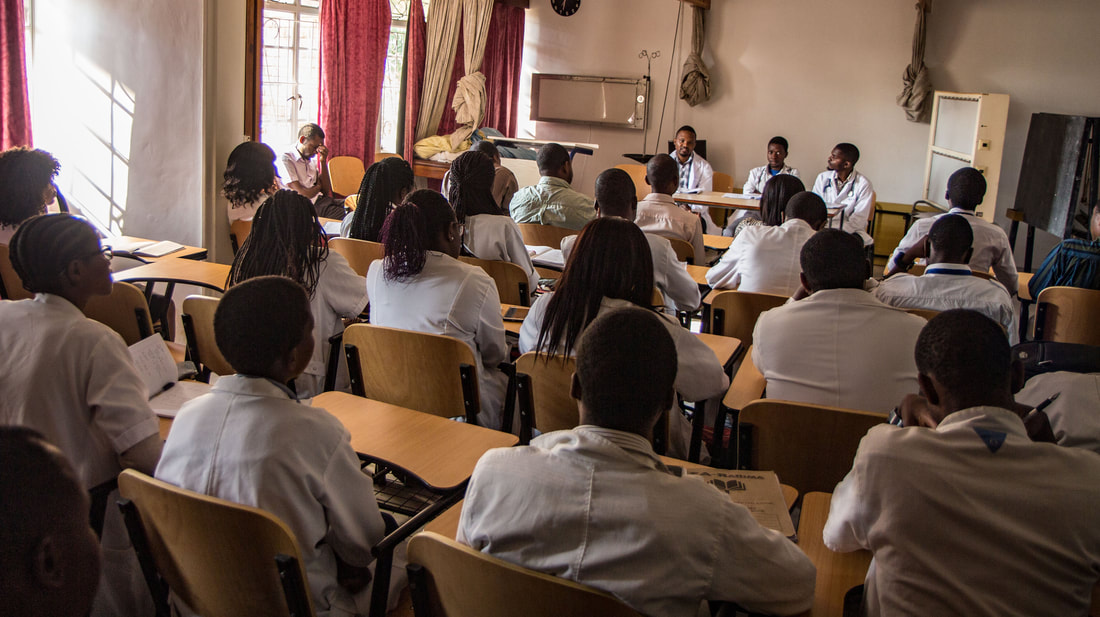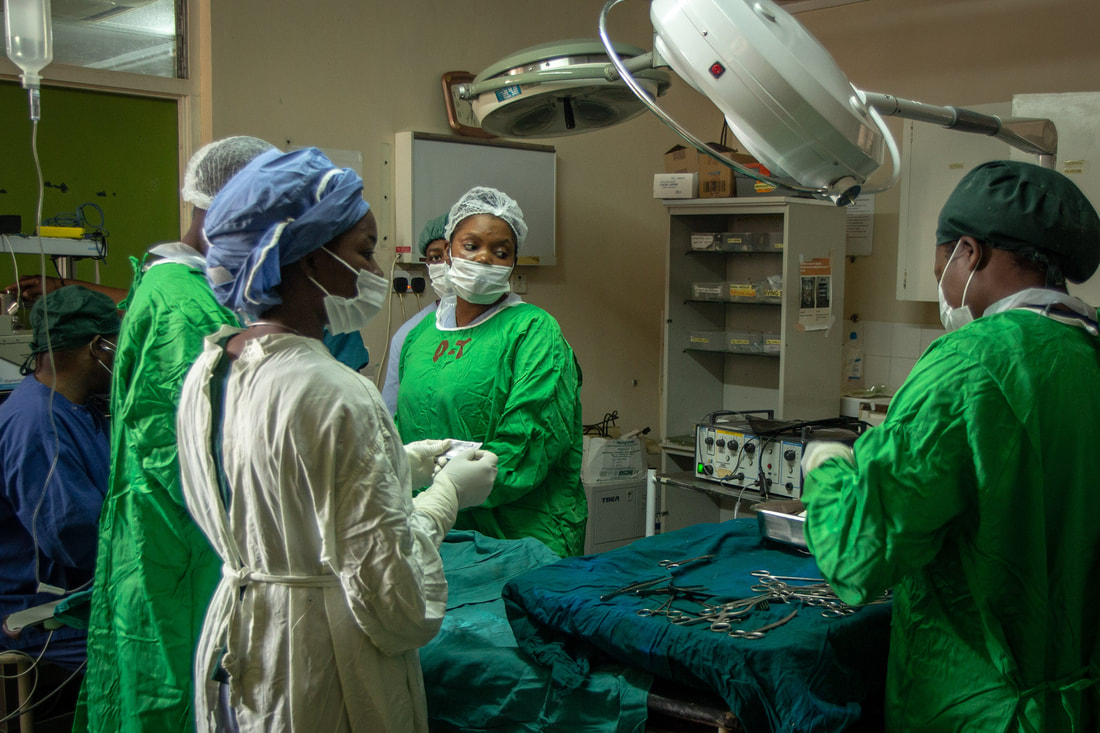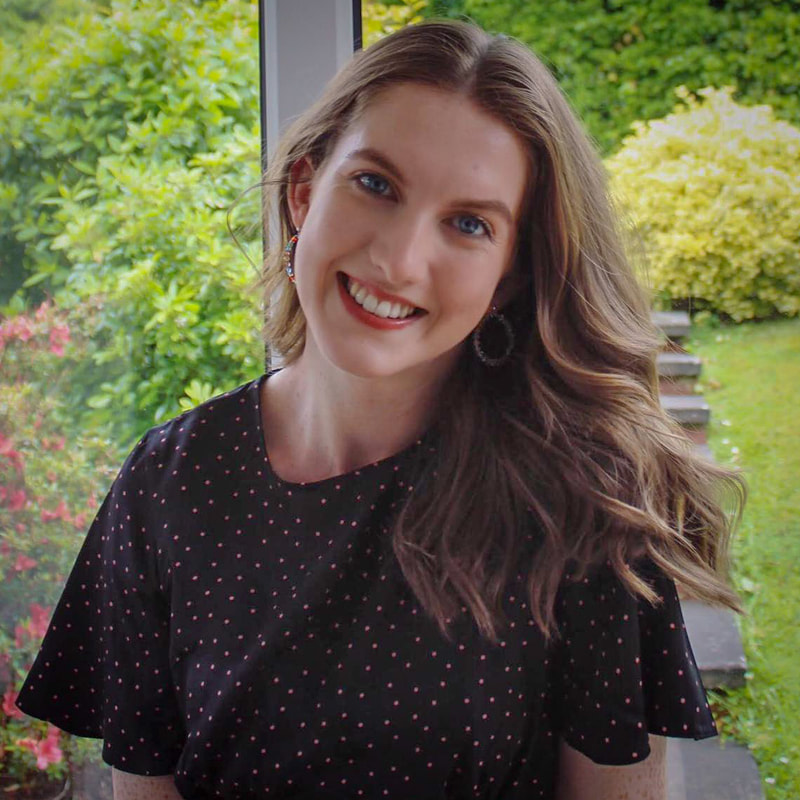|
Throughout my time at medical school I have always been interested in surgery: the impact performing surgery can have on improving quality of life, the practical nature of the discipline, and the fact that it is constantly evolving in light of favouring better outcomes for patients. It wasn’t until my transition to studies in Global Health that I discovered the realm of Global Surgery and started to comprehend the multifaceted nature of surgical service provision. Away from my norm of training in the NHS in Northern Ireland and with this novel perspective, came a greater awareness of the inequalities that existed between and within countries across the world with regards to timely and safe access to surgical care. This new found interest led me to undertake my MSc thesis research with the Institute of Global Surgery at RCSI in partnership with the SURG-Africa project. I had the wonderful opportunity to work with the SURG-Africa research team, on a study looking into the issue of retention of non-physician surgical staff, in particular the graduates of the COST-Africa program. It is well documented in academic literature that Malawi, along with many other countries in sub-Saharan Africa, face a chronic shortage of healthcare workers, amongst which surgical staff are no exception. The study I was involved in followed on from an evaluation of the COST-Africa training programme for non-physician clinicians. This project developed a BSc course for clinical officers (who are non-physician clinicians) in general surgery, and established it at the University of Malawi College of Medicine. This endeavour to scale-up surgery in Malawi successfully conveyed the benefits of upskilling clinical officers, to improve surgical productivity in the districts, where a majority of the population resides. However, there became a need to better understand how to develop and implement effective retention strategies for these up-skilled health workers. As I reflect now, I cannot help but reminisce at how totally immersed I had become in this single issue - reading article after article, to get a grasp on the problem at hand. Admittedly, my experience of healthcare provision in low-income countries such as Malawi until the opportunity to work with the team at SURG-Africa was extremely limited. My understanding of the Malawian health system and indeed its surgical services until this point, had come from journals and various internet sources. I looked forward to embracing the opportunity to visit Malawi, and meet first hand the clinical officers at the heart of the study, as well as a glimpse into Malawian culture and its political landscape. After months of anticipation, on boarding the plane I was a mixture of nerves and excitement. After a relatively uneventful journey but alas a misplaced suitcase later, we arrived at the hotel. I couldn’t wait to get started. We began our interviews at Queen Elizabeth Central Hospital, in Blantyre. I was determined to absorb everything I could. I greatly valued the opportunity to learn from the SURG-Africa team, how to effectively lead an interview, pick up on cues and delve deeper into themes that arose. Their presence on the trip was instrumental in brainstorming ideas, discussing pertinent findings and also for finding out about their careers in the field of research. It was a real privilege to discuss with the clinical officers (COs) about their work, their experience of the COST-Africa programme and their aspirations for the future. Perhaps the most difficult thing I found about writing my thesis, having met with the research participants, was the effort to remain objective and neutral in my discussion. The COs’ commentary on reasons for leaving the district hospitals or public service, in my opinion sounded completely reasonable. Justified even. In the light of severe workforce shortages in the public health system in Malawi, it was admittedly unnerving to learn of the ethical issues implicated in international aid in low-income countries and how in some instances, such as in this study, NGOs were inadvertently undermining the very systems they wished to support and champion. Ultimately, this prompted me to keep in mind the history of Global Health and the necessity of interrogating good intentions. It also provoked me to think about the need for the Global Health and indeed Global Surgery community to challenge the current architecture of health systems across the globe and to continue the promotion of bidirectional partnership. From this study in particular, we supported the call to implement stronger more diverse models of collaboration between stakeholders in Malawi. I greatly admired the COST-Africa programme and the bidirectional participatory relationship of its stakeholders. Looking back now, this trip of firsts is something I will not forget in a hurry - my first time in Malawi and indeed Africa, my first time participating in a research project and above all, it was the first time I realised I could not simply leave all I had learned in my MSc upon graduating medical school, as I had previously thought. I cannot thank the team at SURG-Africa enough for the opportunity, the skills as well as the memories I will take with me throughout my career in the future. I am set to graduate from medical school in 2021, with much broader ideas of what this career will look like. I believe the most meaningful thing I have learned through this experience is that although you might not change the world with what you are doing today, you can certainly join in on the effort. The International Journal of Health Policy and Management (IJHPM) has recently published Marisa Wallace’s paper Why Do They Leave? Challenges to Retention of Surgical Clinical Officers in District Hospitals in Malawi, a piece that analyzes the situation of non-physician clinicians in Malawi and also offers important insights for policy-makers in Malawi and other countries employing this cadre to deliver essential surgery. Marisa Wallace is a medical student at Queen's University Belfast and MSc Global Health graduate.
3 Comments
29/12/2023 11:22:18 am
Embracing insightful lessons from Marisa Wallace's blog on Surg Africa, I seek continuous growth beyond the classroom for personal development.
Reply
12/4/2024 11:51:10 am
As you prepare to graduate from medical school in 2021, what valuable lessons have you gained from this opportunity, and how has it influenced your understanding of contributing to global health efforts? Regard <a href="https://journals.telkomuniversity.ac.id/">Telkom University</a>
Reply
12/7/2024 01:00:15 am
What chronic issue does Malawi face, as documented in academic literature, that the study addresses?
Reply
Leave a Reply. |




 RSS Feed
RSS Feed